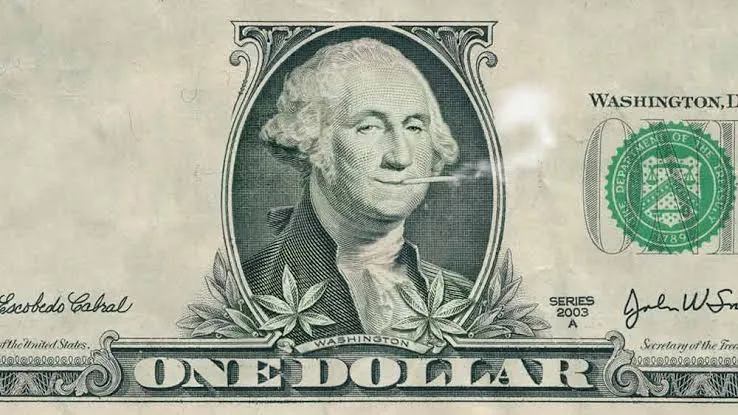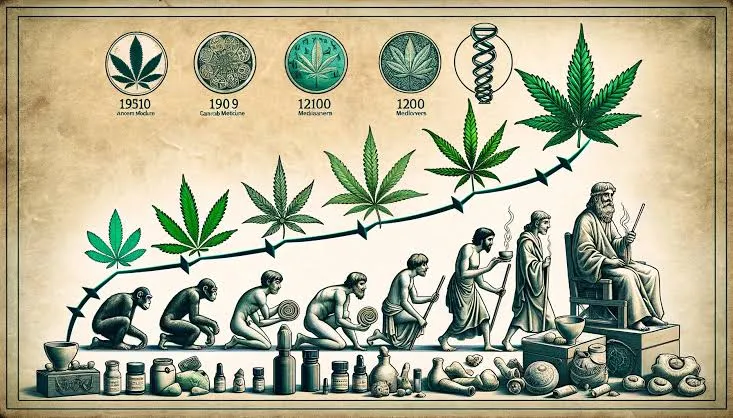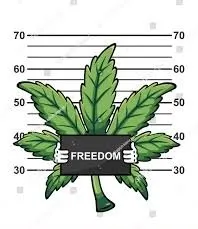
Several Founding Fathers of the United States were involved in the cultivation or trade of hemp (referred to in Portuguese as "cânhamo"). Here are a few prominent figures:
George Washington: The first President of the United States grew hemp at his plantation, Mount Vernon, primarily for industrial use. Washington wrote in his diaries about planting, cultivating, and harvesting hemp.
Thomas Jefferson: The third President of the United States also grew hemp on his plantations in Virginia. Jefferson was known to advocate for hemp as a valuable crop for American farmers, considering its versatility and potential for profit.
Benjamin Franklin: Although not directly involved in the farming of hemp, Franklin owned a paper mill that processed hemp into paper. Hemp was a crucial resource for creating durable, high-quality paper during the colonial era.
John Adams: Adams, the second President of the United States, mentioned the importance of hemp in his writings and expressed support for its cultivation, although he was not known to cultivate it himself.


Utility of Hemp at the Time:
During the 18th century, hemp had several key uses:
Rope and Cordage: Hemp fibers were highly valued for their strength and durability. They were widely used in making ropes, sailcloth, and rigging for ships, which was essential for the maritime economy and navy due to its resistance to saltwater.
Clothing and Textiles: Hemp fibers were spun into thread and woven into fabric for clothing, bags, and other textiles. It was a cheaper and more durable alternative to cotton.
Paper: Hemp was one of the primary materials used in making paper. Many early American documents, including drafts of the Declaration of Independence, were written on hemp paper.
Medicinal Uses: Hemp was occasionally used for its medicinal properties. While less common, some early settlers used hemp seeds and flowers for pain relief or to make poultices.
Industrial and Agricultural Uses: Hemp was used in the production of oil for lamps, as well as in the construction of early American buildings, where it was combined with lime to create a form of concrete.
Hemp was considered a versatile and essential crop in colonial America, with many Founding Fathers advocating for its cultivation as a means of economic independence from British goods.
(So they just throwed all the curated flowers out, right?!)... 😏 😎

The legal status of hemp in the U.S. changed dramatically, the Marihuana Tax Act of 1937 effectively banned hemp cultivation by imposing strict regulations and taxes. This was reinforced by the Controlled Substances Act of 1970, which classified hemp as a Schedule I drug.
Criminalizing minor offenses like smoking marijuana has led to significant negative consequences, especially in terms of mass incarceration rates, death rates, social equality, racial disparities, and public health. This contributes breaking up families, limiting future employment opportunities, and perpetuating these cycles.
The impact extends to third-world countries, particularly in regions like Latin America, where strict drug laws fueled by U.S. policies have led to violent drug wars, corruption, human rights abuses, and political instability, leading to violence and poverty.
Nearly a century of marijuana prohibition has proven that demand is inelastic; people continue to use it despite harsh penalties, widespread criminalization, and heavy enforcement. This persistence shows that prohibition fails to reduce consumption and instead fuels illegal markets, crime, and social inequality, highlighting the futility of oppressive drug policies.
The increased government spending on the criminal justice system, diverting resources from education, healthcare, and social services is illogical. (Maybe thats even the reason, heh?!).
Regulation and taxation of marijuana are better measures because they reduce incarceration rates, promote social justice by eliminating racially biased arrests, and generate significant tax revenue that can fund public services. Legal markets also improve safety by eliminating the black market, reducing drug-related violence, and allowing for quality control. Globally, regulation can reduce the impact of drug wars and corruption in countries affected by illegal drug trade, fostering stability and economic growth.


(I made this post with the help of chatgpt, just to let it clear, blame him, Im too lazy to search all that).
Recently my country, Brazil, descriminalized the weed use (not traffick), its still illicit, but not a crime anymore. Which doesn't solve all issues mentioned, although it was a relief step for me that never sold 1 gram. The ammount to distinguish users/traffickers is 40 grams or 6 female plants (which is way more than 40 grams of smokes, but I won't debate that, right?!). And no, I don't finance organized crime, and I wouldn't like it, I have sources...
I have family historic of health issues that could have been more effectively treated with cannabis. My grandfather had parkinson (very similar physiology from mine), and my father, from same genealogy, has epilepsy. So I think I have the right to smoke therapeutically or even as prevention measure, and even if that wasn't a reason, whatever, go take care of your life.
Btw I take a break periodically to restore my dopaminergic system, am doing it now, 'll try to take some months again this time... We gotta understand that this artificial filling can turn into unproductive time, although many people are able to balance well, you know, we gotta put ourselvs out of our confortable zone sometimes. But yeah, nothing against whoever wants to spend time on it...
At most it could be considered an auto-injury, so there is no victim, logically there is no crime. And here am I calling a relaxing good mood effect an auto-injury, pheeww... The person is dangerously able to destroy the freezer after it or take a nap... Not to mention how it can be used for muscular recover.
Its a healthy issue for the few % that develops some psychological addiction (I saw 10% sometime ago but could be mistaken), and that is due to previous conditions like depression or anxiety. Yeah, there is no chemical addiction in THC, much less in CBD. We could say way worse from many commonly used substances or habits (imagine the police fighting diabetic people).
So it would obviously demand way less capital for psychologists to deal with them, that turns way easier by getting tributed, it doesn't need to be an astrophysicist to do this math, zero sense and argues, its just dumb, not that I expect much. Please, stop this nonsense moralism that negatively impacts others peoples's lifes!! Thanks.